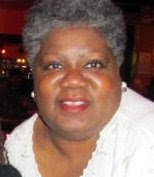Mind Mapping a What?
If you’ve read my introduction, you know I sustained a traumatic brain injury in an auto accident seven years ago. Traumatic brain injuries are not uncommon. I’m one of 5.3 million Americans living with disabilities associated with traumatic brain injury. By the end of this year, another 1.5 million Americans will have sustained a traumatic brain injury. Though my injury was categorized as “mild” because I lost consciousness for less than 30 minutes, according to respected specialists in brain injury care and rehabilitation, so-called "mild" brain injury can devastate one’s functional and interpersonal life by causing significant dysfunction in the realms of attention, cognition and memory while leaving you with an unchanged external appearance. Because you look as you always did, misusage of words is seen as a slip of the tongue. Forgetfulness is attributed to being overextended. Losing track of a thought or “spacing out” in the middle of a conversation is thought to be preoccupation. Folks dismiss, minimize or downright rejected your symptoms as "not real."
Well, as you guessed, several of many functional deficits showed up when I would endeavor to minister. One of the most frustrating tasks was preparing to preach. Head trauma had caused me to have all kinds of visual and cognitive challenges. I couldn’t always track words on a page. I had difficulty quoting well-known Scriptures. I’d lose my train of thought before getting to the end of the sentence. Of course, this produced great anxiety that just made things worse. After two humiliating incidents, I stepped down from pulpit ministry. I simply could not risk permanently destroying the integrity of my ministry.
“How shall I preach? Help me, Holy Ghost!”
To the rescue the Spirit brought to my mind a method I’d learned about many years ago during my psychology training: Mind mapping!
“You have to be kidding. You mind map what?”
I mind map my sermons! Since I’m a visual/kinesthetic learner who has trouble tracking lines of print on a page, it made sense to try an option that uses symbols, pictures, and limited words. (For a full discussion of mind mapping, go to http://en.wikipedia.org/wiki/Mindmapping)
How does one mind map a sermon? (For those who are not preachers, RESIST the temptation to leave. Mind mapping is an intriguing organizational tool for any kind of work because it allows you to immediately capture ideas and associations without struggling with hierarchy or sequential order.) Let me demonstrate by going through my sermon preparation.
Monday: Monday is somewhat leisurely. Sermon preparation begins with the Holy Spirit inspiring either a text or subject to my spirit. I grab my study notebook and favorite Bible and prayerfully begin “mining the text” jotting down, in longhand*, whatever key words or thoughts initially come to mind. Key words are then explored in a Hebrew-Greek lexicon for further amplification.
* For many visual/kinesthetic learners, the actual act of writing is important to embedding and solidifying ideas in the brain.
Tuesday-Wednesday: As I begin linking the text and topic, I start to “hear” elements of the sermon in my spirit. I write down whatever I hear: pieces of the introduction, points, conclusion – whatever. Whatever is given, I mind map in my notebook. Very often, the scriptures accompanying the points come in familiar phrases. I write down the phrases and when the anointing lifts, I run the scriptural phrases through my Bible software program to get the full verse.
Wednesday evening-Thursday morning: By now I’m starting to “preach in my spirit”. The points and their order are beginning to come together. This is when I go to my mind map software (www.inspiration.com). With minimal keystrokes, I’m able to mind map whatever I’m internally preaching. My goal is simply to empty myself and get everything down.
Thursday-Friday: This is when I flesh out the various parts of the message putting everything in order and beginning serious wordsmithing. Because I’m on the computer, it’s a lot of cut ‘n paste/drag ‘n place. I also begin exchanging mind map symbols for clipart graphics. The whole while, I’m preaching the message aloud. Just as the song, Jacob Ladder says, “Every round goes higher, higher.” The message, as I wish to preach it, is becoming embedded in my spirit.
Saturday: I go about my day, but shut down for a quiet evening. Before 9 p.m., I make sure my mind map is in final form, printed, and in my sermon portfolio with my Bible.
Sunday: Having lived with the message for 20-30 hours, when the preaching moment comes, I trust the anointing. The mind map keeps me on-track. I’m freed from anxiety to connect with the congregation as well as make course corrections with the Holy Spirit.
This overcoming daughter of Zion gives praise to Him who is able to do exceedingly abundantly above all that I could ask or think according to His power working in me! (Ephesians 3:20)
Talk to me! Share your thoughts on my solution to sermon preparation or your experience with overcoming adversity.


1 Comments:
Joyce,
I have been researching mind mapping possibilities for my preaching over the last year. I would be very interested after reading your blog, to know what the mind mapping resource is that you use in planning your sermon preparation. When I went to inspiration.com I noticed there were many resources to choose from. Which one do you use?
Post a Comment
<< Home